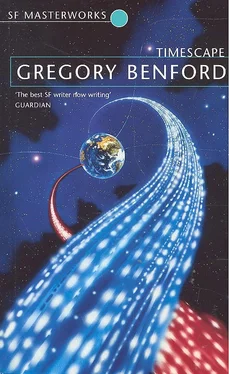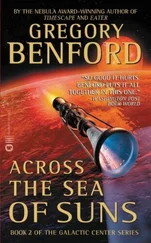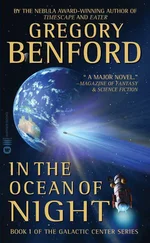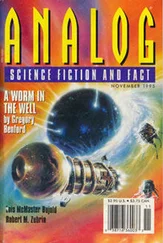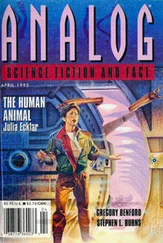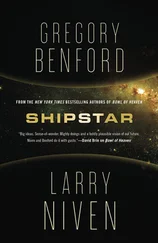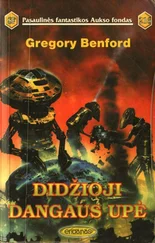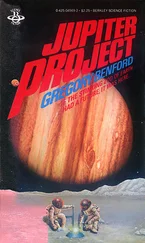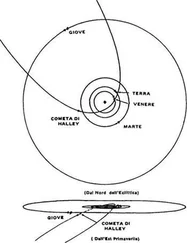• • •
The summer sun bleached everything into a flatness stripped of perspective. Penny came in from surfing and plopped down beside Gordon. “Too many wipeouts,” she explained. “Rip tide, too. Kept sucking me into the pilings.”
“Running is a lot safer,” he observed.
“And boring.”
“But not worthless.”
“Maybe. Oh, that reminds me—I’m going up to see my parents some time soon. I’d go before classes, but Dad is off on some business trip.”
“What reminded you of that?”
“Huh? Oh. Well, you said running wasn’t worthless, and I remembered that I had a student last semester who used the longest word in the English language, deliberately, in a paper I was grading. It’s ‘floccinaucinihilipilification.’ It means ‘the act of estimating as worthless.’”
“Um. Really.”
“Yeah, and I had to look the damn thing up. It isn’t in any American dictionary, but. I found it in the Oxford English.”
“And?”
“That’s the dictionary my Daddy gave me.”
Gordon smiled and lay back on the sand, hoisting an Esquire up to blot out the sun. “You’re a highly nonlinear lady.”
“Whatever that means.”
“It’s a compliment, believe me.”
“Well?”
“Well what?”
“Do you want to go up to Oakland with me or not?”
“That’s what this is about?”
“Despite your attempts to avoid it, yes.”
“Attempts to—? Penny, you’ve been reading too much Kafka. Yes, sure, I’ll go.”
“When?”
“How should I know? It’s your trip, your parents.” She nodded. An odd, pinched expression appeared on her face, then vanished. Gordon wondered what she was feeling but he knew no simple way to ask. He opened his mouth to begin a fumbling approach, and then gave up. Was going to Oakland part of the courtship dance, taking the boy home to be viewed? Maybe that was only an east coast phenomenon; he wasn’t sure. After announcing that she didn’t want to marry him, and then staying on and living with him as though things would just keep going that way, Penny had become an utter mystery to him. Gordon sighed to himself, giving up on the whole subject.
He read for a few minutes and then said, “Hey, it says here the Test Ban Treaty is in effect.”
“Sure,” Penny murmured, rolling over from her drowsy sleep in the sun. “Kennedy signed it months ago.”
“I must’ve missed it.” Gordon thought of Dyson and Orion, a strangely appealing dream that was now dead. Nobody was going to get out to the planets right away; the space program would limp along on liquid fuel rockets. It struck Gordon that the times were pressing in now. New ideas and new people were coming into the old La Jolla of Chandler’s day. The same Kennedy who had pushed the Test Ban and killed Orion was also federalizing the Alabama National Guard, to stop George Wallace from using them against the desegregation program. Medgar Evers had been killed just a few months before. There was a feeling running through the country now, that things had to change.
Gordon tossed the magazine aside. He rolled over beneath the sun’s broiling and began to doze off. A sea breeze brought a sour reek of the rotting kelp bank farther down the beach. He wrinkled his nose. The hell with the press of the times. Politics is for the moment , Einstein said once. An equation is for eternity . If he had to choose sides, Gordon was on the side of the equations.
• • •
That evening he took Penny out to dinner and then dancing at the El Cortez. It wasn’t the sort of thing he usually did, but the strange, stretching tension between them needed attention. They talked during dinner. Over drinks afterward, he began, “Penny, the thing between us, it’s complicated…” She replied, “No, it’s complex.” He hesitated and murmured, “Well, okay, but…” She said sharply, “There’s a difference.” And for some reason that made him angry. He decided to shut up, let the evening go on in the mindless, evening-out-with-the-wifey way she seemed to like. It was odd how she could be a very intelligent, uncompromising literature student one moment, and then in the next come on as ordinary, middle-America, relentlessly oatmeal. Maybe she was part of this time, of things changing.
They danced only to the slow numbers. She moved deftly, lightly, in a slim pink dress. He wore heavy black shoes left over from New York and now and then would miss the beat. The male vocalist sang, in a bluesy voice, “People stay, just a little bit longer. We wanna play, just a little bit more.” Penny suddenly hugged him to her with remarkably strong arms. “Sam Cooke,” she murmured into his ear. He didn’t know what she meant. The idea of knowing who had composed a certain pop song seemed, well, faintly incredible.
CHAPTER TWENTY NINE

AUGUST 28, 1963
THE NOISE LEVEL IN THE NMR MEASUREMENTS began to rise. Each day it was a little higher. Usually Gordon would notice the change in the first data-taking of the morning. He attributed it at first to the slow failure of a component. Repeated checking of the obvious points in the circuitry turned up nothing. Testing of the nonobvious didn’t help, either. Each day the noise was worse. At first Gordon thought this might be a new sort of “spontaneous resonance” effect. The signal was too choppy to tell, though. He spent more time trying to lower the signal/noise ratio. Gradually it came to take up most of his working day. He began to come in nights. He would sit before the on-line oscilloscope and watch the traces. Once, when he had a meeting early the next morning, he slept overnight in the lab. A Fourier decomposition of the noise spectrum showed certain harmonic components, but this clue led nowhere. Meanwhile, the phase-averaged noise level rose.
• • •
“Gordon? This is Claudia Zinnes.”
“Oh, hello. I hadn’t expected to hear from you so soon.”
“We have had some delays. This’s and thats’s. Nothing fundamental, but I wanted you to know we should be on the air within a week.”
“Good. I hope…”
“Yes. Yes.”
• • •
A Santa Ana wind was blowing outside. It pushed with a dry, heavy hand through the low coastal mountain passes, bringing the desert’s prickly touch. Brush fires broke out in the hills. The red wind, some natives called it. To Gordon, sealed in his air-conditioned lab, it was a mild surprise as he left for home late at night; the air seemed thick and layered, ruffling his hair.
He remembered this hot, dry touch the next day as he walked across to the chemistry building. Ramsey, unable to reach him in his office, had left a message with Joyce, the department secretary. Gordon crossed between the buildings on the ornate hexagonal tiered bridge. Entering the land of chemistry brought a sweet-sour aroma, too strong and many-flavored for the air system’s whine to banish. He found Ramsey in a forest of flasks and tubes, talking quickly and precisely to a graduate student. Ramsey titrated a solution as he spoke, pointing out color shifts, adding a drop of milky stuff at a crucial moment. Gordon found a welcome chair and sagged into it. This jungle of clamps and slides and retorts seemed possessed of more life than a physics lab; the knocking of pumps and ticking of timers was a complicated heart, pacing Ramsey’s earnest search. On the wall hung a chart of the gigantic molecular chain that carbon dioxide descends to become carbohydrate; a ladder forged by photons. A liquid scintillation counter muttered, tocktocking through a series of isotopically labeled flasks. Gordon shifted, finding a ledge to lean on, and toppled a Lily cup. Nothing spilled. He inspected it and found a sludge of coffee, thick as glue and mottled by mold. All things here were alive. He had a sudden vision of this glassy palace as a wilderness of nucleic acids, responding to the dry brush of red wind outside. His NMR lab seemed silent and sterile by comparison. His experiments were insulated from the pulse of the world. For the biochemists, though, lite cooperated in the study of itself. Ramsey himself looked more vital, squinting and hovering and talking, an animal padding through the lanes of this chemical jungle.
Читать дальше
